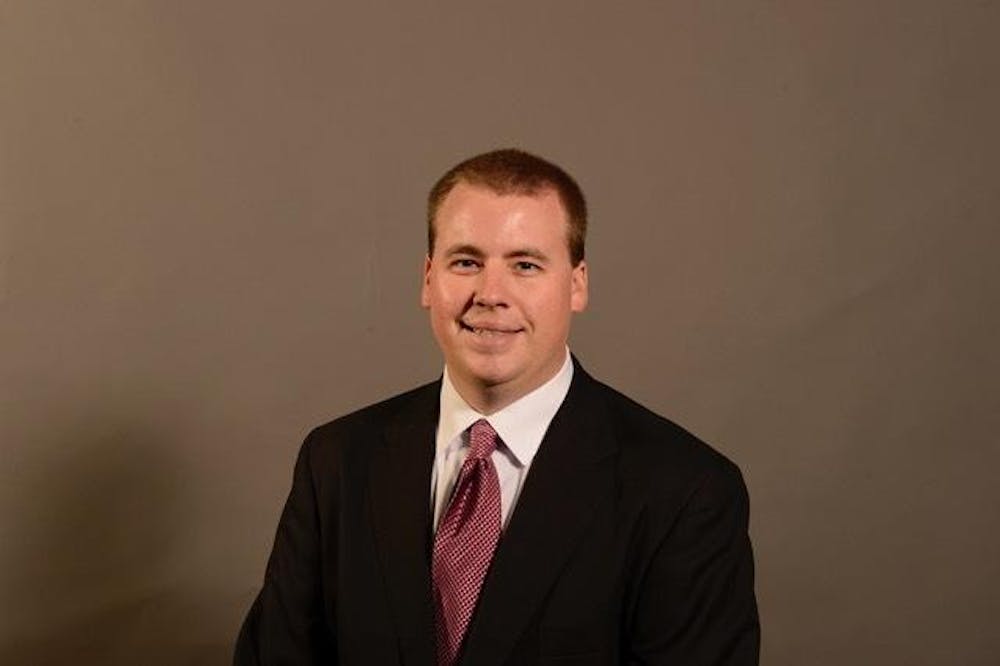The new president of USC's staff senate, Tyson Lusk, said the body must look out for employees at the university by providing benefits such as awards, recognition and representation to keep people in Columbia.
Obtaining quality employees is very competitive, according to Lusk, so he said he intends to look at different ways the senate can assist the university in retaining top-quality staff.
Staff senate represents all non-faculty USC employees — from advisors to custodial staff — and also includes representation from the Schools of Medicine in Columbia and Greenville.
Lusk, who serves as assistant athletics director for development and is the first openly gay individual to serve as president of staff senate, said he wants staff to know that they are appreciated and there are opportunities for everyone.
"I think that really one of our strengths is our diversity because we get so many different perspectives, and we’re able to come together for a common goal,” Lusk said.

Staff senate currently has 48 senators, and any staff member can join after having served a full year in their role.
The senate was founded in 2021 by Angela Wright, who works as the deputy athletics director for internal operations and risk management. Wright said she saw a need for better representation for USC’s staff and began looking around the region for ideas.
“We started talking about it, and we researched, and so we kind of divvied out some tasks, and realized we were one of the only schools in the SEC that did not have a staff council, or a staff senate or any kind of an organization that supported staff,” Wright said.
Wright said she realized that in order for staff to be represented — as staff makes up the majority of USC's workforce on campus — a formal institution would need to be created.
While Wright originally began plans for a staff senate in 2018, the COVID-19 pandemic delayed the staff senate's first meeting nearly three years. When it finally did happen, Wright said she used Microsoft Teams calls and other methods to ensure that progress could still be made while the majority of USC’s staff was still working from home.
Megan Colascione, the vice president of staff senate, assists the president in overseeing the eight committees on the senate, which cover processes from bylaws to staff awards and recognition.
This year, Colascione said she is eager to see the impact that staff senate is making and how staff support can directly affect student life.
“If you really think about it, everything ties back to the students, which is wonderful. And so we want to do the best in our job and so we advocate for mental health, we advocate for just policies and procedures on campus, we advocate for compensation and classification,” Colascione said.
Staff senate does not work totally independent of the university and members rely on administration to turn their concerns into action steps, according to Colascione.
“We’re able to work in tandem with upper administration to meet the needs of staff and to take us seriously enough to know that these needs and these concerns are valid,” Colascione said.
While it functions as a senate, the body is also an advocacy group for staff and an advisory unit to senior and executive leadership, Lusk said. Senators can bring forward pressing issues that concern staff and develop strategies to advocate for them, with a variety of inputs, which Lusk said are an asset to the senate.
“We’re covering every inch of this campus, and so having a body that's dedicated to every employee no matter what they make, no matter what their title is, no matter if they've been here 30 years or three months, we’re here to advocate and support them,” Lusk said.

